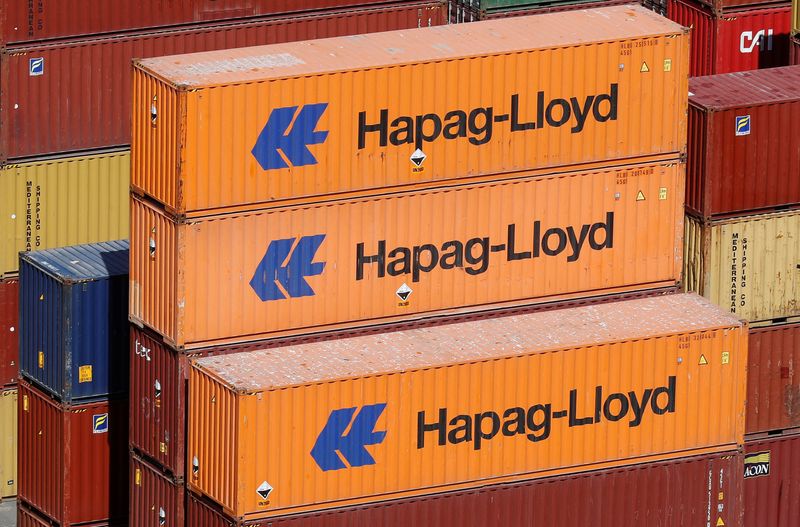Hapag-Lloyd CEO sees bounce in shipping demand as short-lived
2022.12.13 05:24
[ad_1]

© Reuters. FILE PHOTO: Containers of the Hapag-Lloyd shipping company are pictured at the Valparaiso port, Chile November 24, 2022. REUTERS/Rodrigo Garrido
FRANKFURT (Reuters) – Germany’s Hapag-Lloyd is seeing a small uptick in demand for shipping after a decline in recent months, but the company on Tuesday reiterated its more muted outlook for the industry as pandemic disruption fades.
The container business, a bellwether of global economic trends, had seen a noticeable contraction in demand in September and October as economies around the world grappled with sharply spiking inflation and cost-of-living crises in the wake of Russia’s invasion of Ukraine.
“I don’t think the market is as weak as it was four or eight weeks ago,” Hapag-Lloyd CEO Rolf Habben Jansen said on a call with reporters. “Towards the end of the year and running up to Chinese New Year, I think we see a little recovery in demand,” he added.
Despite a doubling in nine-month net profit in the aftermath of the coronavirus crisis which had driven freight rates to record highs, the CEO of the world’s fifth-biggest container liner had already warned in November of falling spot rates and rising inflation-related unit costs.
On the positive side for customers, Habben Jansen on Tuesday pointed to easing port congestion and ship order books, which at 27% of the total fleet, made it highly likely that supply would outstrip demand next year.
For Hapag Lloyd’s fourth quarter transport volumes he stuck to November’s forecast of steady to slightly lower levels than in the same period of 2021, when they totalled 2.9 million tonnes of twenty foot equivalent units (TEU).
Inflationary pressures are a major concern for the company, especially costlier bunker fuels which are linked to the price of , Habben Jansen said, and keeping an edge amid what he described as “fierce competition”.
Larger rival A.P. Moller-Maersk on Monday appointed company veteran Vincent Clerc as its new chief executive from Jan. 1 to lead the company through a period of slowing demand.
[ad_2]
Source link








